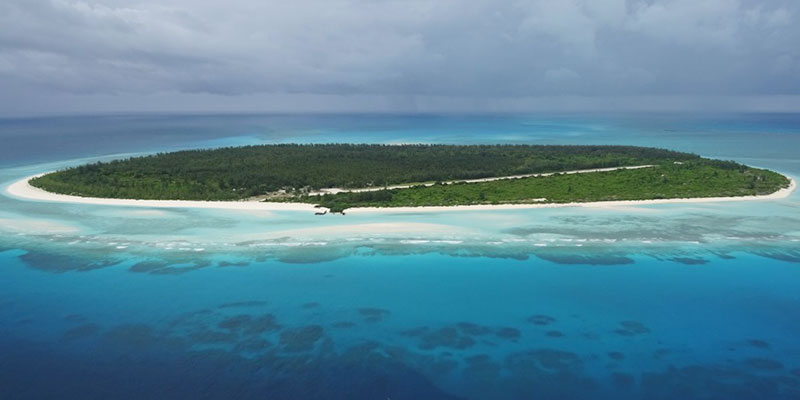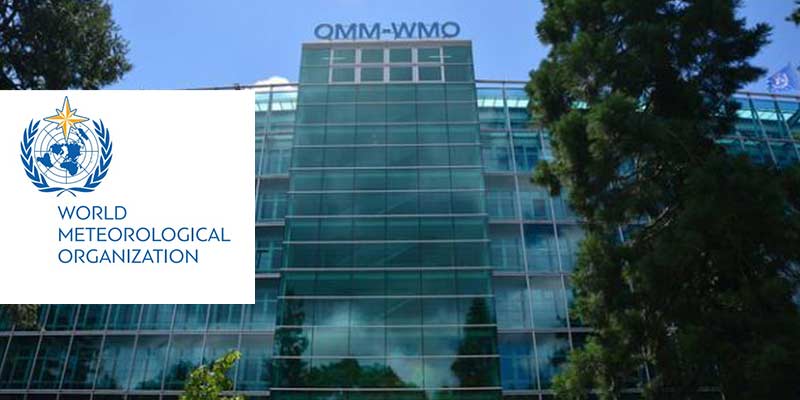- World
- Mar 12
Why meteorological services are vital for ocean economy?
• The ocean is essential to all life and the ocean economy is booming.
• But climate change, overfishing and pollution threaten marine ecosystems and the livelihood of 600 million people worldwide.
• The ocean covers 71 per cent of our planet’s surface. We rely on it to support human wellbeing. The ocean economy is far more than shipping. It is the life blood of our modern society and a major source of food, jobs, and energy.
• The amount of exports of ocean goods and services reached $2.2 trillion in 2023. The world’s ocean economies have grown 250 per cent since 1995, far outpacing the global economy, which grew by 190 per cent over the same period.
• It is essential that this growth be guided by a commitment to sustainability and decarbonisation.
• Reliable meteorological services are very important, enabling safe navigation and reducing operational costs and environmental impact.
• Strengthening ocean observations, advancing meteorological services, and prioritising decarbonisation will ensure a safer, more sustainable, and prosperous future for all.
Ocean observations
• Information from ocean observing is also essential for weather forecasting. It delivers early warning of hazards like tsunamis, storm surges and extreme waves that helps save lives and enables marine operators to remain efficient.
• Continued ocean warming, exacerbated by ocean acidification and other factors, is projected to lead to corals and other ecosystems essential for biodiversity and food and livelihood for millions of people disappearing.
• Dead zones and low oxygen zones are being created by deoxygenation caused by the effects of increased nutrient loads and ocean warming.
• Nutrient pollution is leading to harmful algal blooms that devastate marine biodiversity and pose a significant risk to human health.
• The Global Ocean Observing System (GOOS): It is an important driver of the ocean economy. It observes our ocean through the “eyes” of thousands of observing platforms that feed weather forecasts, early warnings and climate prediction. GOOS is led by the Intergovernmental Oceanographic Commission (IOC) of UNESCO, and co-sponsored by the World Meteorological Organisation (WMO), the United Nations Environment Programme (UNEP) and the International Science Council (ISC).
• Argo Program: A major contributor to observations is the Argo program. Argo is a global network of autonomous floats that revolutionised ocean observation. Since its inception in 1999, Argo has grown into a fleet of nearly 4,000 robotic floats, drifting with ocean currents and conducting dives of up to 6,000 meters. These floats collect critical data that contribute to the GOOS, allowing us to better understand changes in ocean heat, sea level rise, and circulation, improve weather and extreme event forecasts, and help society manage and adapt to environmental change.
• More than 1,000 Voluntary Observing Ships provide real-time meteorological data, improving weather forecasts and advancing our understanding of climate dynamics.
Marine Forecasting and Services
• Approximately 30 per cent of maritime incidents are linked to adverse weather, reinforcing the need for forecasts and early warnings to enable ships to optimise routes, avoid extreme weather, and reduce fuel consumption.
• The International Convention for Safety of Life at Sea (SOLAS) underscores the need for reliable maritime safety information. WMO therefore works closely with the International Maritime Organisation in the provision of Worldwide Met-Ocean Information and Warning Services.
• The WMO Integrated Prediction and Processing System (WIPPS) further strengthens maritime resilience by improving forecasts for tropical cyclones, global wave and storm surge predictions, and marine emergency responses.
• In addition, the United Nations Early Warnings for All (EW4All) initiative has an important marine services component.
Climate Insights
• The ocean absorbs more than 90 per cent of the excess heat from human activities. From 2023 to 2024, the global upper 2,000 m ocean heat content increased by 16 zettajoules, about 140 times the world’s total electricity generation.
• Climate change is exacerbating extreme weather events, leading to more rapidly intensifying tropical cyclones, and increased coastal flooding.
• The ocean is being hit by increasing numbers of marine heatwaves and coral bleaching episodes, resulting in billions of dollars of damage to the blue economy.
• The severe drought which impacted key shipping routes like the Panama Canal in 2023-2024 highlighted the vulnerability of global supply chains and trade routes.
• The decline of Arctic sea ice opens up potential new shipping routes in the future. But less ice does not mean less danger in hazardous polar waters.
• According to UN Trade and Development (UNCTAD), an estimated 11 per cent of all greenhouse gas emissions worldwide are caused by ocean-based activities.
World Meteorological Organisation (WMO)
• The World Meteorological Organisation (WMO) is a specialised agency of the United Nations.
• It is the UN system’s authoritative voice on the state and behaviour of the Earth’s atmosphere, its interaction with the oceans, the climate it produces and the resulting distribution of water resources.
• The WMO has 193 Members, including 187 Member States and 6 territories, maintaining their own meteorological services.
• It originated from the International Meteorological Organisation (IMO), which was founded in 1873.
• Established in 1950, WMO became the specialised agency of the UN in 1951 for meteorology (weather and climate), operational hydrology and related geophysical sciences.
• WMO facilitates the free and unrestricted exchange of data and information, products and services in real or near-real time on matters relating to safety and security of society, economic welfare and the protection of the environment. It contributes to policy formulation in these areas at national and international levels.
• WMO coordinates the activities of National Meteorological and Hydrological Services in 193 States and territories so that basic weather, climate and water services are made available to anyone who needs them.
• The Secretariat, headquartered in Geneva, is headed by the Secretary-General.
Manorama Yearbook app is now available on Google Play Store and iOS App Store




